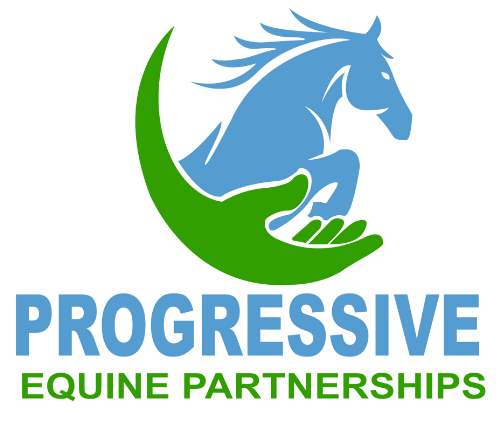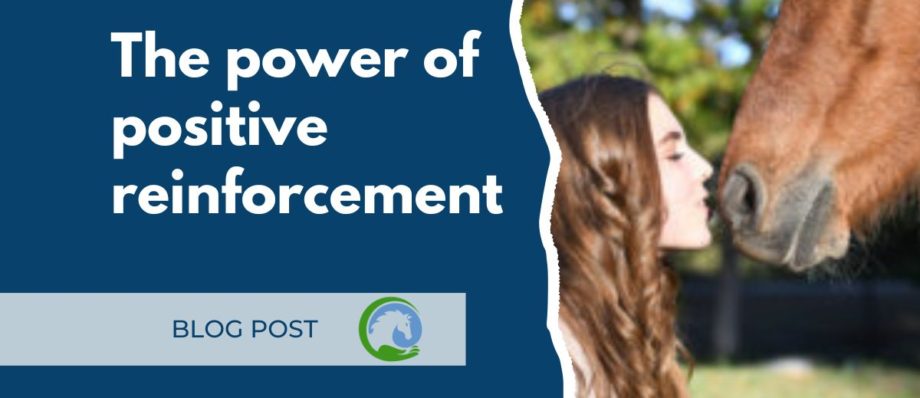The power of positive reinforcement
As horse owners and trainers, we are always looking for ways to improve our communication and bond with our equine partners. One effective technique that is gaining popularity in the horse community is positive reinforcement training. Positive reinforcement is a powerful tool that can have a significant impact on a horse’s behavior and emotional state, as well as improving the overall training experience for both the horse and the trainer. In this blog post, we’ll explore five key benefits of using positive reinforcement with horses.

Builds Trust and Confidence
Positive reinforcement training provides a safe and rewarding learning environment for horses. This type of training focuses on rewarding desired behaviors rather than punishing unwanted behaviors. By using treats or other positive stimuli, trainers can reinforce good behavior and encourage horses to repeat those actions. This approach builds trust and confidence as horses come to recognize that good behavior results in positive rewards. Over time, this trust and confidence can lead to a stronger bond between horse and trainer.
Creates a Positive Association with Training
Gone are the days of using force or intimidation to train horses. Positive reinforcement training promotes a non-threatening and enjoyable training experience for horses. As horses learn to connect training with positive experiences, they become more willing and enthusiastic in their training sessions. This positive association with training can also reduce the likelihood of your horse developing behavioral problems, such as anxiety or aggression.
Increases Motivation and Engagement
When horses are engaged and motivated, they are more likely to learn and retain information. Positive reinforcement techniques tap into a horse’s natural desire for food or other rewards, providing powerful incentives for them to engage in training. Horses learn faster and more willingly when they are motivated to work for positive rewards. This increased motivation and engagement can lead to faster and more effective training, as well as improved performance in competitions or other activities.
Reduces Stress and Fear
Traditional training methods often rely on physical or verbal anger (tone) to correct unwanted behavior, which can create fear and anxiety in horses. Positive reinforcement training, on the other hand, focuses on positive reinforcement of desired behavior rather than punishment of unwanted behavior. This approach creates a less stressful and fearful learning environment, which can help horses stay calm, receptive and engaged during training. This increased sense of calm and focus can lead to better performance and overall health.

Improves Overall Well-being
Not only can positive reinforcement training lead to better performance, but it can also improve a horse’s overall well-being. Horses that are trained using positive reinforcement are more likely to have positive responses to handling, grooming, and veterinary care. They also tend to have better mental health, which can lead to better overall physical health. The positive rapport established through positive reinforcement can lead to a horse that is more confident, calm, and attentive in all aspects of their life.
Conclusion
Positive reinforcement training is an effective approach that benefits both horses and trainers. It is a powerful tool that can build trust, confidence, motivation, reduce stress and improve the overall well-being of horses. By incorporating positive reinforcement techniques into your training regimen, you can create a positive and rewarding training experience for your horse, leading to a stronger bond and better performance. Whether you are a professional trainer or an amateur rider, consider incorporating positive reinforcement into your training routine to achieve the best possible results with your equine partner.



